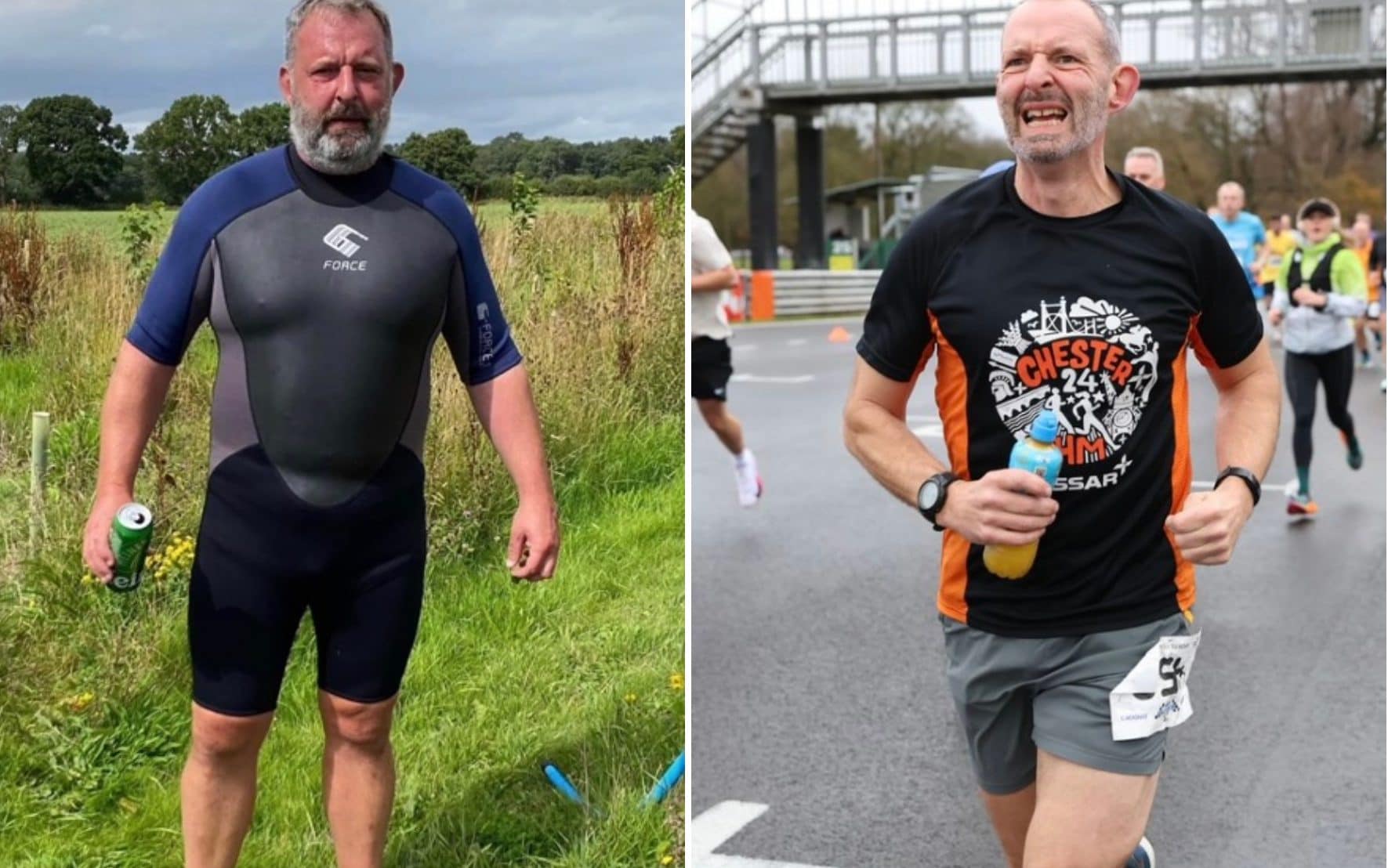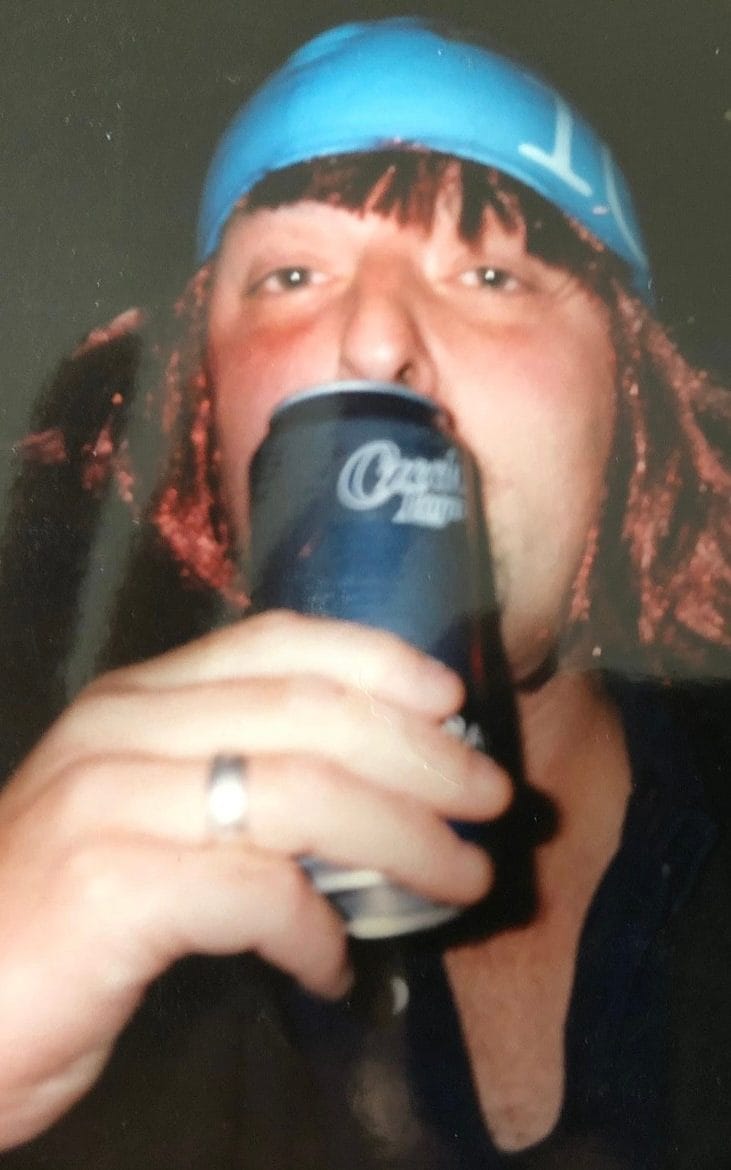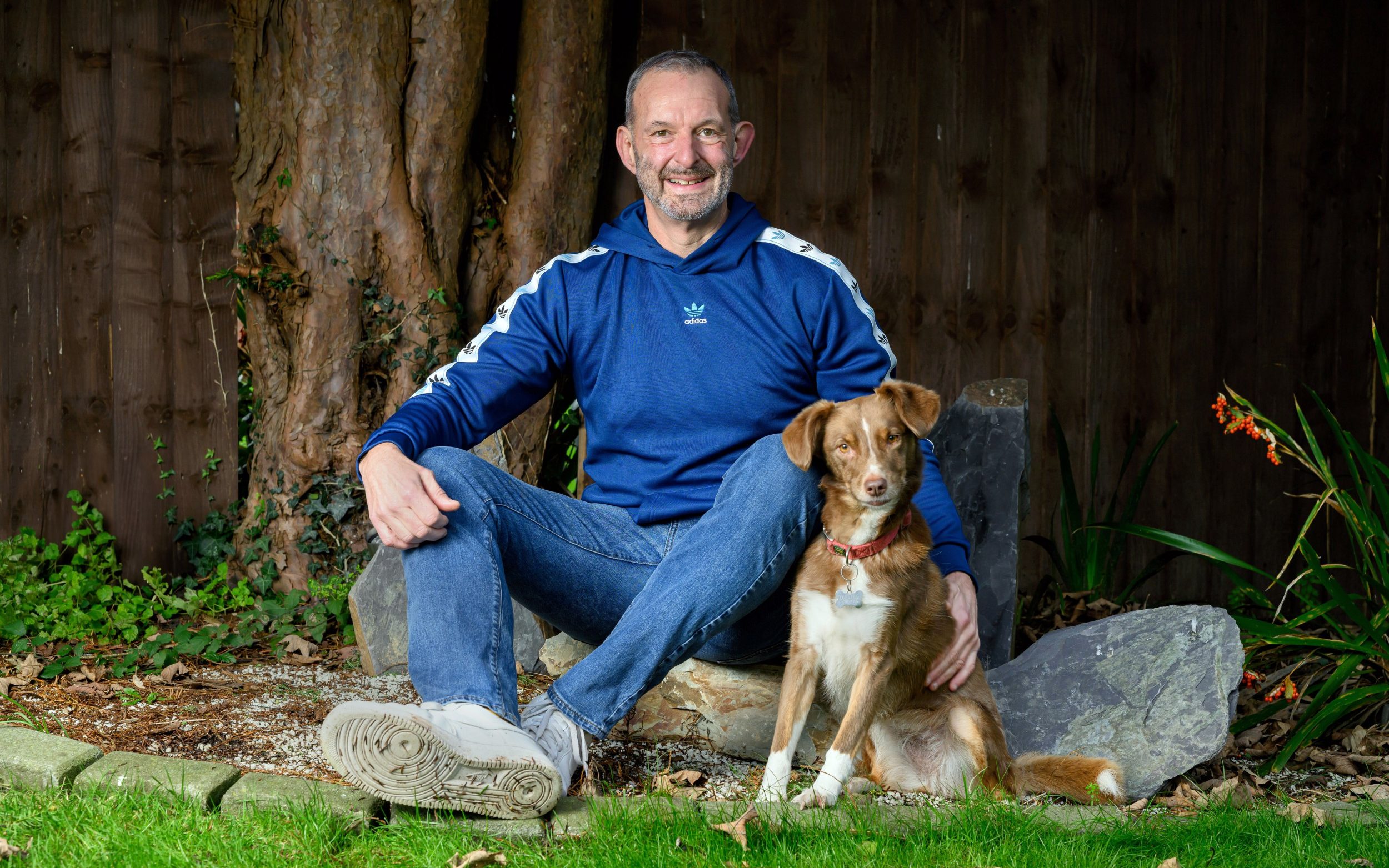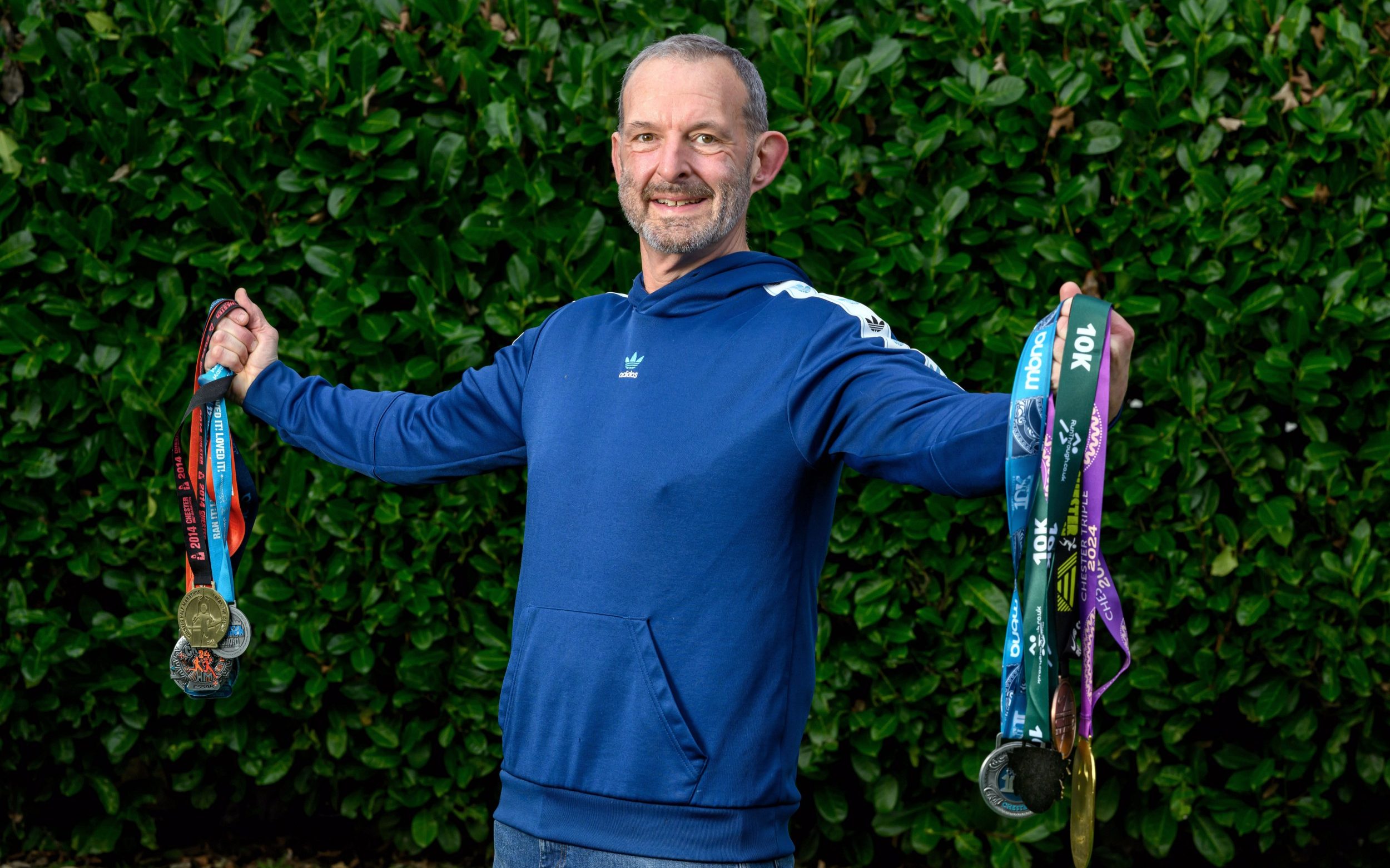
.
Julian, 52, liked beer. His social life revolved around the pub. He was, and still is, a successful people manager for a large pharmaceutical company.
But when he wasn’t working, he was enjoying a drink. His last four homes had bars in them.
He was the life and soul of the party. He never drank spirits and doesn’t count himself as the archetypical alcoholic, reaching for spirits in the morning. He was ‘mentally dependent’ and drank, on average, between 70 and 80 units a week, sometimes rising to 100. The cumulative effect of all that grog was killing him.
Today, apart from two accidental mouthfuls (a sip of his wife’s Coke which had rum in it, and an inadvertently served bottle of Becks instead of Becks 0%) Julian has not touched a drop in nearly four years.

Unlike many teetotallers, he doesn’t sugar-coat sobriety. There are things he misses and things he’s had to give up. His social life has suffered, and friendships have changed. “There are one or two negatives,” he admits. “But I could list 20 positives to being alcohol free. It’s not perfect, but my life is 95 per cent better.”
bad cholesterol levels.
Julian drank every day.
“I would have a beer at dinner time, another while I was cooking dinner, and then beer or a bottle of wine, and I’d finish the bottle off,” he says. “On Wednesdays I’d have five or six pints at the pub.” Weekend drinking started straight after work in the pub each Friday, then continued again on Saturday afternoon and through the evening.
.”
All his friends were drinking buddies from the pub.
During all this time Julian was a regular gym goer. He trained several times a week and ran. Despite this he gained more and more weight, reaching 19.5 stone by the age of 48.
“The training never had an impact, and I never saw a benefit,” he says. “I was 16 stone at 30 and realised I needed to do something, but the weight just went up and up and I hated myself for it.”
Julian was a functional drinker. There were no real car crash moments. “I remember once having several pints, getting on a bike, and falling into the middle of the road, sprawled out in front of a car,” he recalls. “And in my student days there was the time at a Christmas meal when I ran behind everybody and set their Christmas hats on fire. But generally, I never got drunk. I’d get tired before I got drunk.”
The health problems began to show in his mid-40s.
. I see people like you 10 times a week, and nobody ever listens. You’ll have your first heart attack in the next five years or so.’”
Then, in 2020, he was diagnosed with polycythaemia, a type of blood cancer in which the bone marrow produces too many red blood cells.
“It puts you at a higher risk of stroke and heart attack,” says Julian. “The haematologist said it won’t kill you tomorrow, but if you don’t start behaving, it will eventually.”
, post-drinking anxiety and depression.
“I woke every morning feeling rough, thinking, why have I done it again? Can I not just have one day off? The hangovers weren’t headaches, they became deeply psychological. It was the depression of waking up and thinking, I’ve done it again. I was awake every night with anxiety, feeling so down and depressed. Every morning I said to myself today I won’t drink, but by teatime I had a beer in my hand.”

Julian and his wife Sharlean, who encouraged him to cut down over the years, have two adopted daughters.
“I wasn’t particularly present. I wasn’t being a good husband or good father,” he confesses.
It was during one of these nighttime anxiety attacks that Julian was scrolling on his phone and found One Year No Beer (OYNB), an organisation that offers support, resources and coaching programmes to help people give up alcohol. The company offers subscription packages and Julian signed up for a year.
It was the catalyst he needed, and he’s become an advocate for the programme.
“I went all in with it,” he says.
He realised that moderation was not going to work so with the help of strategies and the support network of OYNB he stopped drinking in June 2021.

.
He says that physically he had no withdrawal symptoms.
“The one real challenge was FOMO, or fear of missing out,” he continues. “It would be dishonest to say that social life does not suffer. It does. My relationships with a lot of friends have changed because I don’t go to the pub much any more, but overall, that part of my life has been replaced with much better things.”
And although Julian cannot guarantee he’ll never drink again, he is not tempted to try and moderate.
I’d do it,” he concludes. “But in alcohol-free communities you see people who think they can moderate, and they wake up six months later, right back to where they started.”
The health benefits of beer-free living
Weight
At his heaviest, 6ft Julian weighed 19.5 stone.
“I was getting fatter and fatter,” he says. He is now 13.5 stone. A body composition analysis records his total body fat at 14 per cent. His waist shrank from 42in to 32in.
Heart health
No more atrial fibrillation. His enlarged left ventricle is now a normal size.
“I have a perfectly normal heart,” says Julian. “My pulse has gone from a resting heart rate of 72 to 52.”
Liver
Julian explains: “I was diagnosed with a fatty liver. I no longer have a fatty liver. My bad cholesterol level has halved.”
Blood cancer
Julian was diagnosed with polycythaemia, a blood disorder that put him at high risk of clots, stroke or heart attack. He needed three-monthly venesections to reduce the volume of his blood. He no longer needs the treatment, and his blood counts have normalised.
Before quitting his haematocrit count – the percentage of blood made of red blood cells – was 56. A healthy range is between 40 and 45. It is now 42.
Sleep
Julian previously averaged around six hours of broken sleep a night, punctuated by anxiety attacks. In 2024 he averaged eight hours 25 minutes sleep per night “which is just unbelievable. I easily get 25 per cent more sleep now”.
Mental health
Julian no longer suffers depressive episodes.
“I don’t wake up in the middle of the night for two hours of overthinking, and full of self-loathing and anxiety,” he says.
Fitness
His 10k time has been reduced from 76mins to 49 minutes. His 5k time is 23mins 35 secs, down from 30 mins. His half marathon time was 136mins, it is now 117mins. He has 48 running medals.
He trains in the gym six days a week. “I get a buzz out of achieving more in the gym, lifting heavier and seeing if I can push it a little bit further,” he says.
Family life
Sharlean says: “We get quality time with him instead of just time with him. We work together as a family now, there isn’t a fifth member of our family (booze). He does his fair share of the driving! We no longer have to go to the pub to see him on the weekends. We were always second fiddle. We have conversations instead of him just singing drunken eighties songs at me. He listens.”
Lexi, 15, says: “He’s not a fatty anymore.” Grace, 17, says: “We get more of him because he’s not in the pub all the time. He is more brain alive. He is there for me; I feel more secure.”


Post a Comment
0Comments